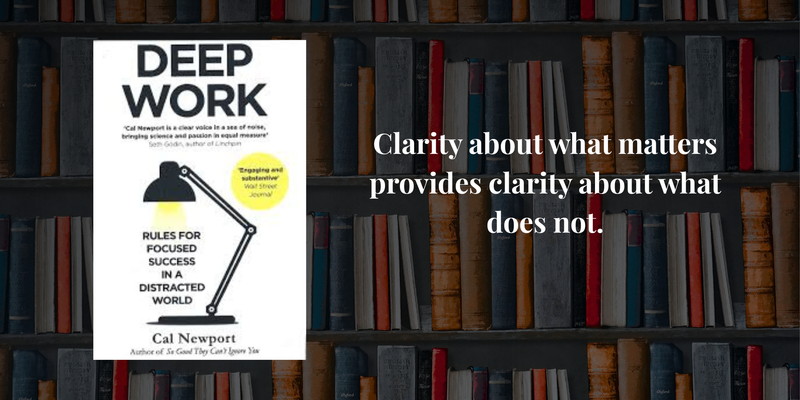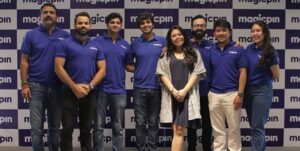You know that feeling when you sit down to get something important done—only to find yourself checking your phone every five minutes, bouncing between tabs, or scrolling through notifications you don’t even remember tapping on?
It’s not just you. It’s all of us.
We live in a world that worships hustle and glorifies being “busy,” but often that busyness leads to very little real progress. Between endless Zoom calls, Slack pings, emails, reels, and side conversations, we’ve become professional multitaskers—but terrible deep thinkers.
That’s where Cal Newport’s Deep Work comes in like a breath of fresh, focused air.
Published in 2016, the book feels even more relevant now. Newport argues that in an increasingly distracted economy, the ability to perform deep work—focusing without distraction on a cognitively demanding task—is like a superpower. It’s the secret sauce behind creative breakthroughs, business success, academic excellence, and meaningful work.
7 lessons from the book Deep Work
1. Deep work is a superpower in the modern economy
In a world full of distractions, those who can focus deeply will stand out. Newport calls deep work a skill that’s becoming rare and valuable. With AI, automation, and remote work on the rise, the ability to master complex tasks quickly and produce high-quality output without distraction is what sets top performers apart.
Relatable tip: Start with a single task you need to finish today. Turn off notifications, close all other tabs, and set a timer for 25–60 minutes of focused work.
2. Shallow work is easy, but dangerous
Shallow work refers to tasks that are low value, easy to replicate, and often done while distracted—like responding to emails, attending status calls, or updating spreadsheets. While it feels like you’re being productive, you’re not building long-term value.
Relatable tip: Audit your calendar and to-do list. Ask: How much of this is deep work? Start carving out more time for what really matters.
3. You must ruthlessly protect your time
One of the core themes of the book is the importance of creating rituals and routines that protect your time for deep work. Newport himself doesn’t use social media and limits his email interactions to preserve his focus.
Relatable tip: Try time-blocking. Instead of a to-do list, divide your day into chunks where specific tasks get your full attention.
4. Embrace boredom to train your brain
Newport says our brains are addicted to distraction because we constantly stimulate them—refreshing feeds, checking notifications, or watching short videos. To work deeply, you need to retrain your brain to tolerate boredom.
Relatable tip: Next time you’re waiting in line or commuting, resist the urge to pull out your phone. Let your mind wander. That’s how creativity brews.
5. Quit social media (or use it like a tool)
This one hits hard. Newport urges readers to quit—or at least severely limit—social media. His argument? If a tool doesn’t significantly support your personal or professional goals, drop it.
Relatable tip: Conduct a 30-day digital declutter. Remove apps that don’t serve you and track how you feel. You might be surprised by the results.
6. Work deeply, then disconnect fully
Deep work isn’t about grinding 12 hours a day. Newport emphasises shutdown rituals and rest. Your brain needs recovery time to work at its best.
Relatable tip: Set a specific end time to your workday. At that time, step away completely—no “just one more email” or “quick check-ins.”
7. Your focus is your life
This might be the most profound takeaway from Deep Work- where you place your attention ultimately shapes your reality. If your days are filled with shallow inputs, so will your output be.
Relatable tip: Each morning, ask yourself: What’s the one thing I can do today that will make me feel fulfilled when I go to bed? Then guard time for it.
Final thoughts
In Deep Work, Cal Newport isn’t just talking about productivity hacks. He’s proposing a philosophy of life—one where you prioritise depth over distraction, craftsmanship over chaos, and focus over frenzy.
It’s not easy. But it’s worth it.
In 2025, as digital noise only grows louder, learning to master deep work may be the most important personal and professional skill you can develop. Not just to get ahead—but to feel truly alive, connected, and satisfied with your work.
So start today. One focused hour at a time.







![Read more about the article [Product Roadmap] How CleverTap used AI and ML to help Nykaa, Zomato, AirAsia, and Dream 11 engage users](https://blog.digitalsevaa.com/wp-content/uploads/2021/06/Product-Roadmap-1623767830740-300x150.png)


